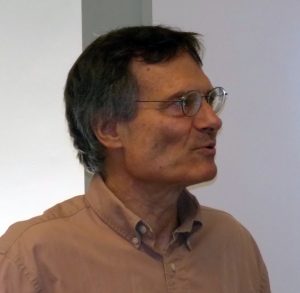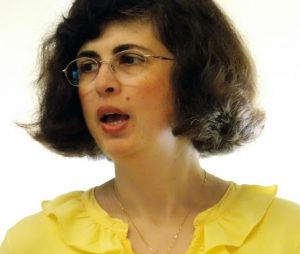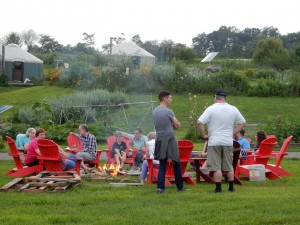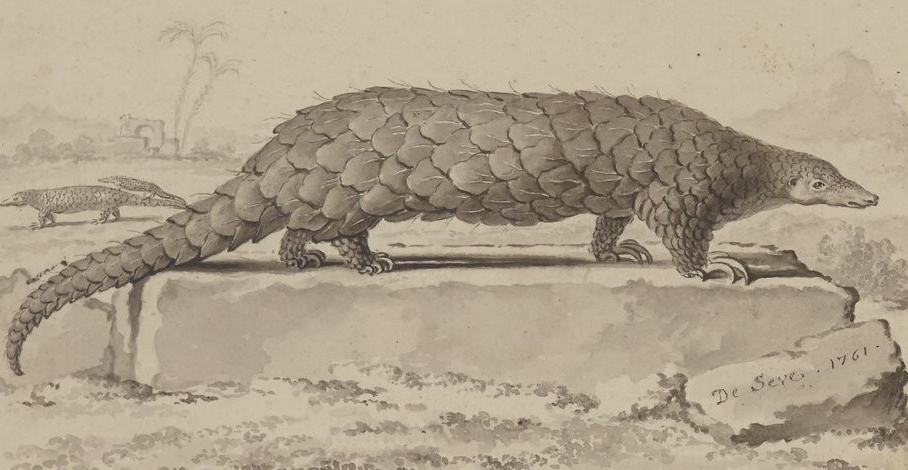Professors Francese and Mastrangelo have been named honorary fellows at the Guangqi Center for International Scholars at Shanghai Normal University in recognition for an ongoing collaboration that has resulted in several global conferences and publications.

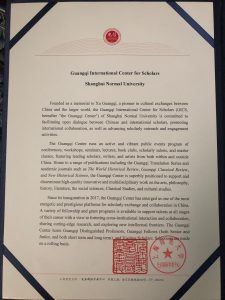
The relationship between Dickinson and the Guangqi Center began in 2015 with a conference at Shanghai Normal University organized by DePauw University classics Professor Jinyu Liu. This meeting resulted in the founding of Dickinson Classics Online (DCO) to provide resources for Chinese students of the Greco-Roman classics, including texts and commentaries, essays, and dictionaries. It is the sister project to Dickinson College Commentaries (DCC). At the initial meeting the editorial board created of the Chinese version of the DCC Core Greek and Latin Vocabulary lists. Subsequent publications have included editions of several Latin texts with Chinese notes and translations.

On the Dickinson side these initiatives are funded by the Dean’s Office (which supported the initial 2015 conference) and the Roberts Fund for Classical Studies. The 2017 global conference in Shanghai celebrating the bi-millennium of Ovid’s death was supported by the Chinese National Social Science Foundation’s Major Grant (2015-2020), “Translating the Complete Corpus of Ovid’s poetry into Chinese with Commentaries,” led by Prof. Liu and other members of the DCO board. First results from this major translation project have also been published on DCO.
The 2019 colloquium, just completed, took place at the Columbia University Global Center Beijing, and was co-sponsored by Columbia, Dickinson, and the Chinese Ovid Project. It brought together a group of Chinese classicists working on the Ovid project, distinguished western Latinists including Gareth Williams of Columbia and Stephen Heyworth of Oxford University, and noted East Asian Studies scholar Wiebke Denecke of Boston University. The group discussed the problems of making Ovid speak Chinese, the potential of a truly global approach to pre-modern literatures, and the role of Digital Humanities in the future of global classicism.
Ongoing projects of the Dickinson-Guangqi collaboration include the digitization, led by Prof. Francese, of Affonso Gonçalves’ Lexicon Magnum Latino-Sinicum (1841) the largest Latin-Chinese dictionary in existence (sample here), and a long-term project to digitize the massive synoptic guide to pre-modern Chinese literature, the Cursus Litteraturae Sinicae (1879) of the Italian Jesuit Angelo Zottoli. A team led by Prof. Mastrangelo is working on a Hellenica, a series of ancient Greek texts that tell the history of the 5th century BC and the Peloponnesian War.
Professor Mastrangelo and I are profoundly grateful to the Guangqi Center for this honor and recognition, and look forward to many years of fruitful collaboration to come.






